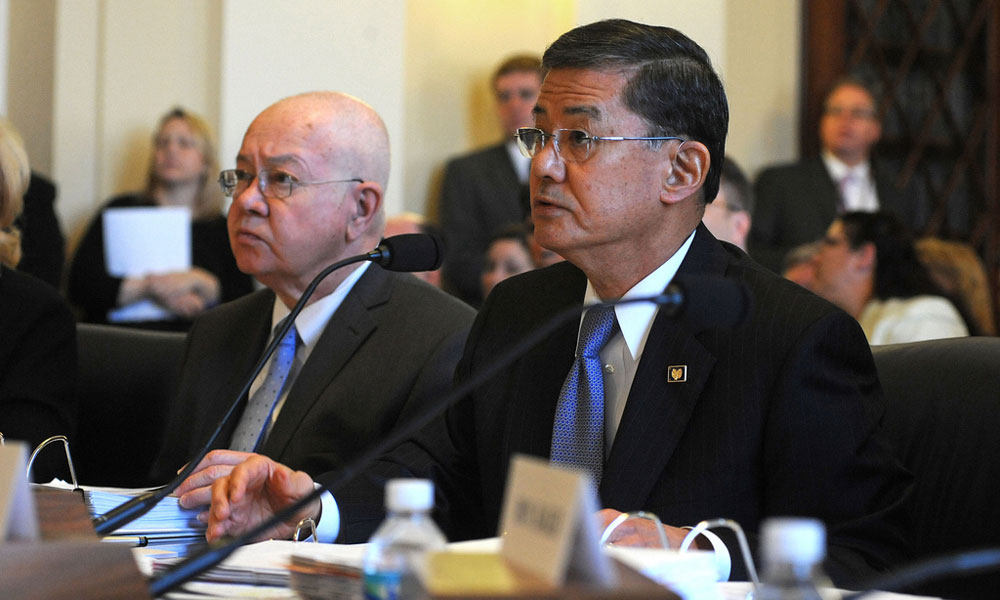
Veterans Groups Mixed on Proper Response to VA Scandal
Associations representing the nation’s veterans uniformly expressed their disappointment and concern over countless allegations of delayed medical care and fraudulent record-keeping by the Department of Veterans Affairs, but the groups are split on how to move forward.
With each passing day, the hole seems to get deeper for the U.S. Department of Veterans Affairs.
Last week, Rep. Jeff Miller (R-FL), chair of the House Veterans Affairs Committee—the panel investigating claims that the VA delayed care to veterans, which may have resulted in preventable deaths, and tried to cover it up—told CNN that what has been reported thus far is “just the tip of the iceberg.”
“We’ve received some information and some tips that will make what has already come [to light] look like kindergarten stuff,” Miller said.
As embattled VA Secretary Eric Shinseki continues to meet with lawmakers to give status updates on an internal review and independent investigation, associations that represent veterans have started to weigh in.
Groups including Paralyzed Veterans of America (PVA), the Blinded Veterans Association (BVA), Disabled American Veterans, and the American Legion all issued statements on the scandal. While the groups agree that something needs to be done to ensure veterans are getting the care that they need, they disagree on how the VA—and Congress—should proceed, specifically regarding Shinseki’s future with the agency.
In his testimony [PDF] at a recent Senate Veterans’ Affairs Committee hearing, Carl Blake, PVA’s acting associate executive director for government relations, told the committee that, while PVA was deeply disappointed in the reports, it continues to support Shinseki, a position that a majority of veterans groups hold.
“We believe that a thorough analysis to understand the depth of the situation across the system should be completed before any decisions about leadership are made,” Blake said. “VA healthcare services by and large are excellent. And sending veterans outside of the VA to get private care is not the solution to this problem, particularly for veterans who rely on the VA’s specialized services.”
In a letter to Shinseki, BVA offered its continued support, citing the overall quality of the healthcare veterans receive once they are able to access it.
“During your tenure as secretary, VA patient satisfaction surveys reflect that more than 85 percent of veterans receiving care directly from VA rate that care as excellent,” the letter stated.
The American Legion—a group that hasn’t called for a public official to step down since 1978—is on the other side of the fence. Daniel Dellinger, the group’s national commander, called for Shinseki and several other VA officials to resign earlier this month.
“The VA has been aware for some time that inappropriate scheduling procedures are widespread among its medical facilities. Yet Secretary Shinseki has taken no initiative in correcting the problem,” Dellinger said in a statement. “Veterans continue to die waiting for their healthcare, senior VA executives continue to get their bonuses, and only after all of this is the secretary now pledging to fix what’s wrong.”
Embattled VA Secretary Eric Shinseki, shown right. (Robert Turtil/U.S. Department of Veterans Affairs)






Comments